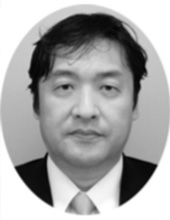Best Paper Award
Linear Quadratic Regulator with Decentralized Event-Triggering
Kyohei NAKAJIMA, Koichi KOBAYASHI, Yuh YAMASHITA
[Trans. Fundamentals, Vol.E100-A, No.2 February 2017]

Kyohei NAKAJIMA
Koichi KOBAYASHI
Yuh YAMASHITA
The IoT (Internet of Things) era in which the measurements of several sensors can aggregate in a server is coming. It is important to not only aggregate data sets but also control the actual system. Control methods for using IoT technologies have been studied in many fields such as transportation, medicine, and agriculture. In the field of control engineering also, networked control has been actively studied.
Where networked control is considered using conventional digital control theory, a communication interval must be given in advance. In many cases, the communication interval is given by a constant. However, it is desirable that the communication interval is time-varying depending on the situation. From this viewpoint, event-triggered control methods have been proposed. In this control method, each sensor has an event-triggering mechanism. This mechanism determines if the sensor sends measured data to a controller implemented by e.g., a cloud server. In many cases, the current measured data is compared with the measured data that was most recently sent. Thus, event-triggered control methods have been actively studied as a control method which considers both communication and control.
In this paper, we propose a new method for event-triggered control over sensor networks in which multiple sensors are located in a distributed way. We consider an optimal control problem, and show that a suboptimal solution (i.e., a controller) can be derived by solving the LMI (linear matrix inequality) optimization problem. We also show that the control performance in the proposed method is better than that in the conventional method in which multiple sensors are regarded as one sensor.
In summary, the event-triggered optimal control method over a sensor network proposed in this paper is expected to contribute to the development of theory for event-triggered control. Furthermore, the proposed method is expected to be fundamental for systems and control technologies towards realizing a super smart society.






